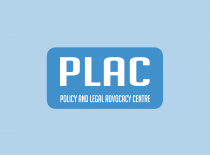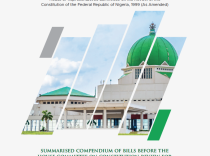 The Senate on Tuesday, 24th May, 2016 passed the Sexual Harassment in Tertiary Institutions Bill for second reading. It would be recalled that the Bill came up for first reading on 4th May, 2016. The sponsor of the Bill, Sen. Ovie Omo-Agege (LP:Delta) leading the debate on the Bill described the act of sexual harassment in tertiary institutions as a vice and a crime which the Bill seeks to address. Citing educators of great repute such as Nnamdi Azikiwe, Ahmadu Bello and Obafemi Awolowo, Sen. Ovie noted that a fiduciary relationship exists between educators and students which should be protected by the educators because of their position. He said sexual harassment in tertiary institutions has been on the rise thereby necessitating a Law to provide sanctions to curb it. He further cited consequences on students who refused to accede to the sexual advances of educators to include extra semesters in school and lesser grades. He proposed criminalization of the offence and prosecution of offenders to serve as a deterrent to others. He said further that educators were victims in some cases where they are approached by students who make sexual advances to them for academic favours.
The Senate on Tuesday, 24th May, 2016 passed the Sexual Harassment in Tertiary Institutions Bill for second reading. It would be recalled that the Bill came up for first reading on 4th May, 2016. The sponsor of the Bill, Sen. Ovie Omo-Agege (LP:Delta) leading the debate on the Bill described the act of sexual harassment in tertiary institutions as a vice and a crime which the Bill seeks to address. Citing educators of great repute such as Nnamdi Azikiwe, Ahmadu Bello and Obafemi Awolowo, Sen. Ovie noted that a fiduciary relationship exists between educators and students which should be protected by the educators because of their position. He said sexual harassment in tertiary institutions has been on the rise thereby necessitating a Law to provide sanctions to curb it. He further cited consequences on students who refused to accede to the sexual advances of educators to include extra semesters in school and lesser grades. He proposed criminalization of the offence and prosecution of offenders to serve as a deterrent to others. He said further that educators were victims in some cases where they are approached by students who make sexual advances to them for academic favours.
Speaking on the Bill, Sen. Theodore Orji (PDP: Abia) said the Bill should be passed as it would discourage those who indulge in sexual harassment in tertiary institutions. Also in support, Sen. Dino Melaye (APC:Kogi) said institutions should have minimum dressing standards to check students who dress indecently, thereby making themselves victims of sexual harassment. He also said disciplinary action should be taken against educators where they are found culpable. However, Sen. Abdullahi Yahaya (APC: Kebbi) proposed that rules on sexual harassment should be in the Code of Conduct of Universities and their enforcement ensured to check the act. He was of the opinion that a law checking sexual harassment in tertiary institutions specifically was discriminatory especially as sexual harassment occurs in other occupations.
The Bill has been referred to the Senate committees on Judiciary, Human Rights and Legal Matters for further legislative input.





